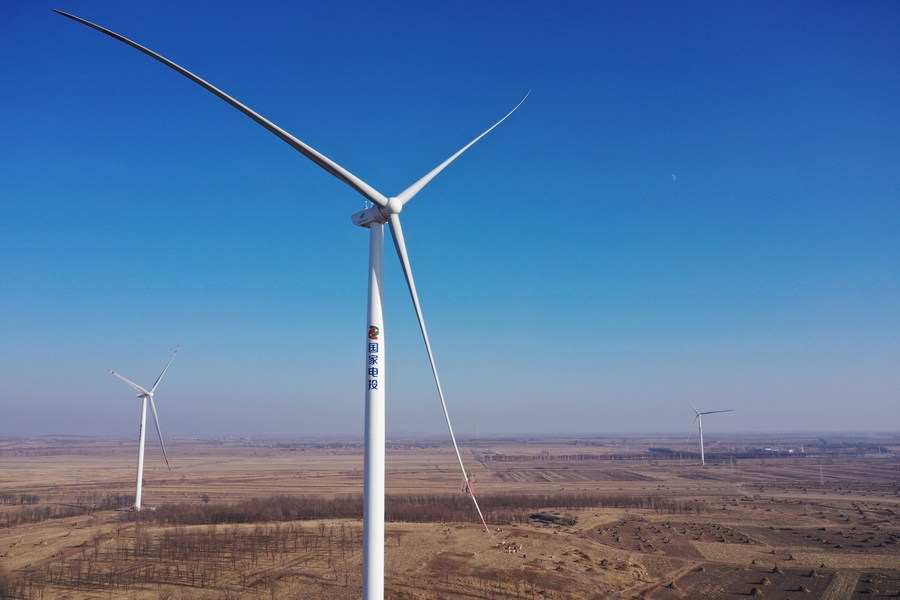China's energy regulator lists priority tasks for high-quality development
 0 Comment(s)
0 Comment(s) Print
Print E-mail Xinhua, April 13, 2023
E-mail Xinhua, April 13, 2023

This photo shows a major onshore wind power project in northeast China's Liaoning Province, on Dec. 30, 2022. [Photo/Xinhua]
China's National Energy Administration (NEA) has decided to make multi-pronged efforts to advance the high-quality development of the domestic energy sector.
Zhang Jianhua, head of the NEA, told a press conference on Wednesday that such efforts mainly revolve around five aspects, namely ensuring energy security, boosting clean and low-carbon transformation, enhancing self-reliance in science and technology, facilitating institutional innovation and enhancing international cooperation.
To enhance energy security, China will make good use of coal, the ballast of domestic energy supply, increase oil and gas exploration, storage and production, keep domestic crude oil production at 200 million tonnes in the long run, and maintain a natural gas self-sufficiency rate of no lower than 50 percent, Zhang said.
The country will seek to expand the use of non-fossil energy alternatives and diversify its clean energy supplies, including wind power, solar energy, hydropower, bioenergy, nuclear energy and hydrogen energy.
In term of advancing clean and low-carbon transformation, Zhang emphasized the need to foster a change in the energy consumption trend. Over the next five years, China will strive to expand the proportion of non-fossil energy in total energy consumption by one percentage point annually. By 2035, 80 percent of the country's electricity growth will come from non-fossil sources, and by 2050, non-fossil energy will play a dominant role.
Efforts will also be made to enhance the resilience and security of the industrial and supply chains in the energy sector, such as fostering core industrial chains and having more self-reliance and control over key equipment, Zhang said.
On the frontier of institutional innovation, Zhang said that legislative work will be enhanced to help unleash industrial vitality. The enactment of the energy law and the revision of the laws on electricity, coal and renewable energy will be accelerated.
He noted that energy cooperation is a key area of Belt and Road cooperation. China will promote mutually beneficial cooperation with key energy- and resource-rich countries, and will strengthen energy, green and low-carbon cooperation with other developing countries.






Go to Forum >>0 Comment(s)